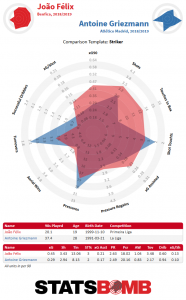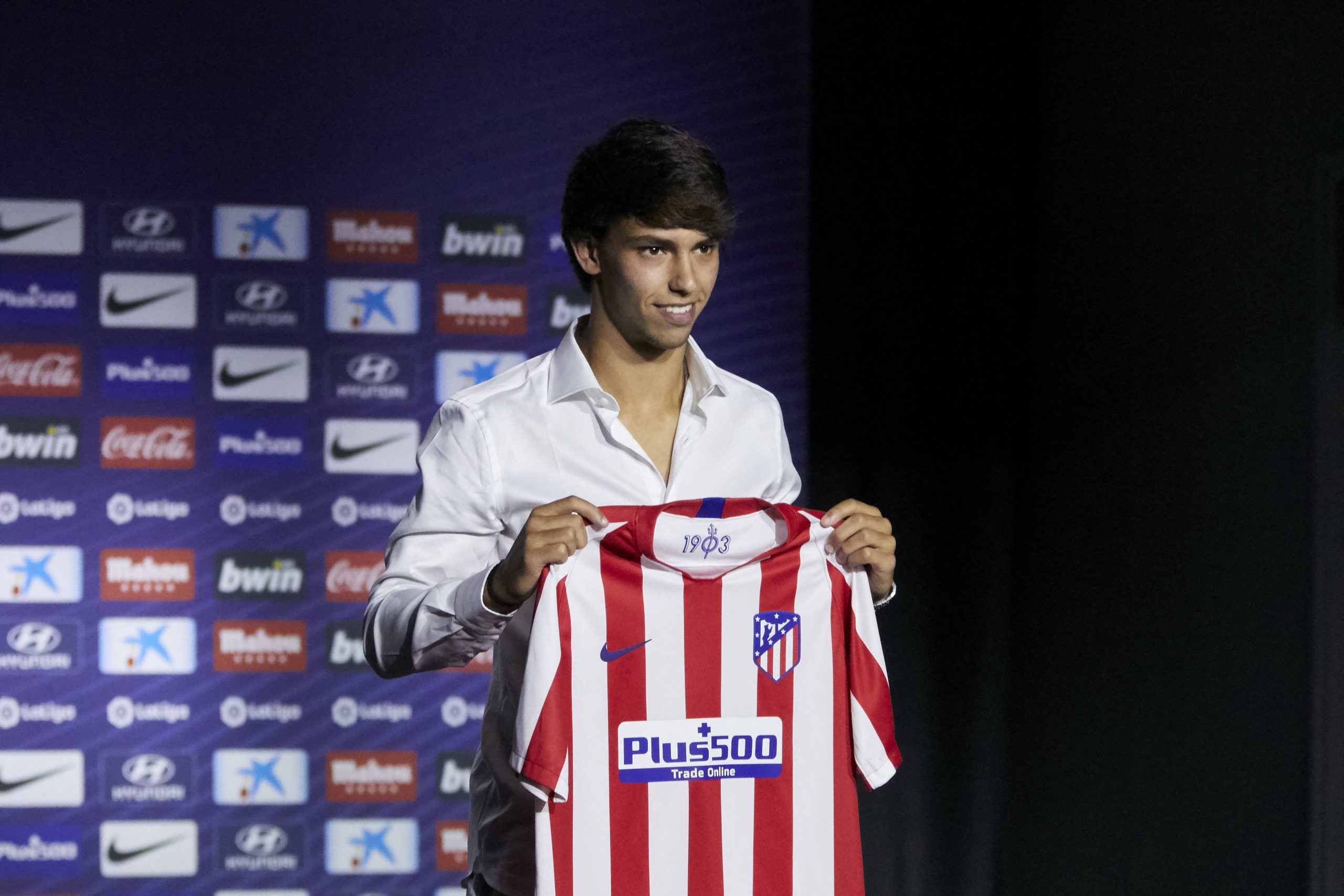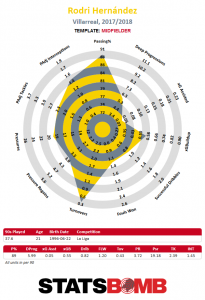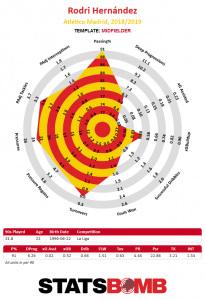On May 14th, Antoine Griezmann announced publicly that he was leaving Atletico Madrid. He’s still lingering on the books as Atletico and Barcelona publicly air out a bizarre, tense negotiation process, but at the time of Griezmann’s announcement, the club faced a serious question: How do we rebuild this team? Griezmann was their best player, one of the few on earth who can turn a game on its head and carry a team. His role during his entire Atletico tenure was to lug an offensive scheme that rarely dared to enter the final third or score more than one goal per game. Griezmann, a key cog who orchestrated so much for France in the World Cup, was reduced to slowing down counters and recycling possession on so many occasions. Atletico lost their main creator, but have also lost so much of their core. Diego Godin has moved to Inter Milan. Filipe Luis and Juanfran are leaving the club. Lucas Hernandez, a breakout young defender and one of the league’s best, has left for Bayern Munich. He was the man that could’ve eased the transition. Rodri Hernandez, the most valuable defensive midfielder in Spain, was sold to Manchester City -- a team that suits his playing style much more. Rodri, like Griezmann, will thrive in an environment where he sees more of the ball. Only Koke, Saul, Tomas Partey, Stefan Savic, Jan Oblak, and Jose Gimenez remain from that Atletico squad that took to the field in the 2016 Champions League final against Real Madrid in Milan. Nearly two months after Griezmann’s announcement, Atletico answered the call by spending just over £176m on four players: Joao Felix, Marcos Llorente, Felipe, and Renan Lodi. Hector Herrera was nabbed from Porto for free, too. They took an unprecedented gamble on Felix -- spending more money on him than any club in history (apart from Paris Saint-Germain) has ever spent on a player. Felix, as promising as he is, has just a one-year sample size at the top level. However, that small sample size is a very impressive one.  Felix is not a Griezmann carbon copy, but has tremendous upside as a 19-year-old who thrives behind the main striker, is comfortable creating from deep, composed in tight spaces, and is a quick incisive passer and cool finisher -- all traits Simeone needed Griezmann for. A lot will be asked of the teenager by Simeone, and it will be interesting to see how his physical profile endures an entire season of defensive work. The Portuguese is not an athletic freak -- he often is taken out of the game in the second half due to his low stamina. Defensively, we’ve yet to see him in a low block like Atleti’s. But, in a vacuum, Felix is an interesting replacement for Griezmann, and despite Atleti spending £113m on him, they will be well on course to have a £100m+ net positive for the summer once they sell Griezmann officially. Atleti needed to move the needle somehow during this rebuild, and not many other stars would’ve been at their disposal with Felix’s specific skill-set. This Atleti team has come too far and come too close to fall into irrelevancy again. With Simeone -- the man who defines this era -- still around, they will always try to be competing at an elite level. It won't be easy, particularly with the squad still needing work. Atletico fans can at least be optimistic about one thing: Simeone tends to have his team at an elite defensive level regardless of who plays. Last season, it was a guessing game as to who would be available at the back. Lucas Hernandez missed 26 games due to injury; Jose Gimenez missed 19; Stefan Savic missed 18; Filipe Luis missed 13; Diego Godin missed 10; and Juanfran missed 9. Simeone’s defense was a mish-mash of whoever was humanly able to walk, and rarely did he have his preferred quartet. Still, Atleti had the best defensive record in La Liga, and lowest expected goals against of any team in Spain. When all else fails, Jan Oblak goes into alien mode and masks defensive cracks. This solidity will give the rest of the team a base to work from. How all of the new signings will integrate into the reinvention of Atletico will be fascinating. Marcos Llorente, like his predecessor Rodri, plays his best as a single anchor where he can read passing lanes and start counters. But Simeone never gave Rodri the gift of playing that role, and rarely deviated from his 4-4-2 where he unapologetically arranged a midfield of four central midfielders. He also never gave Rodri, a deft passer, a possession-based scheme that took advantage of his vertical artistry. Still, Rodri’s numbers across the board were impressive, and it will be exciting to see what he can accomplish under Pep, in a blueprint where players zip around without the ball and provide outlets for long-range passes. City will make life easy for him.
Felix is not a Griezmann carbon copy, but has tremendous upside as a 19-year-old who thrives behind the main striker, is comfortable creating from deep, composed in tight spaces, and is a quick incisive passer and cool finisher -- all traits Simeone needed Griezmann for. A lot will be asked of the teenager by Simeone, and it will be interesting to see how his physical profile endures an entire season of defensive work. The Portuguese is not an athletic freak -- he often is taken out of the game in the second half due to his low stamina. Defensively, we’ve yet to see him in a low block like Atleti’s. But, in a vacuum, Felix is an interesting replacement for Griezmann, and despite Atleti spending £113m on him, they will be well on course to have a £100m+ net positive for the summer once they sell Griezmann officially. Atleti needed to move the needle somehow during this rebuild, and not many other stars would’ve been at their disposal with Felix’s specific skill-set. This Atleti team has come too far and come too close to fall into irrelevancy again. With Simeone -- the man who defines this era -- still around, they will always try to be competing at an elite level. It won't be easy, particularly with the squad still needing work. Atletico fans can at least be optimistic about one thing: Simeone tends to have his team at an elite defensive level regardless of who plays. Last season, it was a guessing game as to who would be available at the back. Lucas Hernandez missed 26 games due to injury; Jose Gimenez missed 19; Stefan Savic missed 18; Filipe Luis missed 13; Diego Godin missed 10; and Juanfran missed 9. Simeone’s defense was a mish-mash of whoever was humanly able to walk, and rarely did he have his preferred quartet. Still, Atleti had the best defensive record in La Liga, and lowest expected goals against of any team in Spain. When all else fails, Jan Oblak goes into alien mode and masks defensive cracks. This solidity will give the rest of the team a base to work from. How all of the new signings will integrate into the reinvention of Atletico will be fascinating. Marcos Llorente, like his predecessor Rodri, plays his best as a single anchor where he can read passing lanes and start counters. But Simeone never gave Rodri the gift of playing that role, and rarely deviated from his 4-4-2 where he unapologetically arranged a midfield of four central midfielders. He also never gave Rodri, a deft passer, a possession-based scheme that took advantage of his vertical artistry. Still, Rodri’s numbers across the board were impressive, and it will be exciting to see what he can accomplish under Pep, in a blueprint where players zip around without the ball and provide outlets for long-range passes. City will make life easy for him.
2019
A look at the Atletico Madrid rebuild
By admin
|
July 10, 2019


